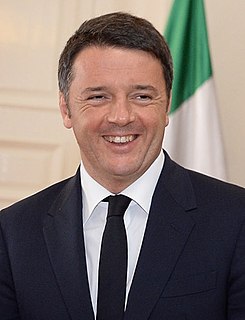A Quote by Rita Levi-Montalcini
I say to the young, be happy that you were born in Italy because of the beauty of the human capital, both masculine and feminine, of this country... No other country has such human capital.
Related Quotes
I think in theory, the United States finds it much easier to deal with situations where there is a leading country. You can go to the leaders of that country and say, for example, to India, "There are all these problems in Bangladesh, we really have to do something about it, what do you suggest we can do to work out a common policy?" But when you don't have the equivalent of India, you have to go capital to capital trying to put together a coalition, which is extraordinarily difficult, especially in the Arab world, because of the historic rivalries and branches of Islam.
I've come from a very masculine country to a feminine country. England was very masculine; people went from England to abroad, and they landed from above and they said "These are the gods you will worship, these are the crops you will grow, now go away and do it." Which is a manly attitude. Americans go abroad and they say, "Try not to quarrel so much", which is a feminine attitude.
If one fourth of the capital of a country were suddenly destroyed, or entirely transferred to a different part of the world, without any other cause occurring of a diminished demand for commodities, this scantiness of capital would certainly occasion great inconvenience to consumers, and great distress among the working classes; but it would be attended with great advantages to the remaining capitalists.




































